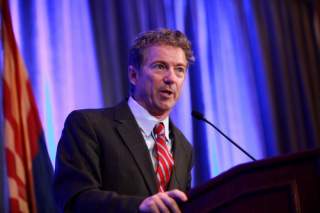GOP Candidates Sparred Over Wealth, War and Washington Itself
Is the Republican Party becoming overtaken by Tea-Party conservative economic populism?
Kasich: He got particularly animated when going after Trump’s vow to deport America’s illegal immigrants. He also departed from most of his colleagues in warning that GOP attacks on the Federal Reserve, if carried to their logical conclusion, could undermine its independence. If currency stability and the money supply resided with Congress, he said, it would be a disaster (he’s right). He seemed the least animated on issues of Washington corruption and crony capitalism. Nothing he said or did in the debate seemed to alter his long-shot status.
Paul: He said he wants to see a much smaller government, “so small you can barely see it.” When asked about income inequality, he promptly blamed the Federal Reserve’s low-interest-rate policies. He explained his tax plan smoothly and in detail. But Paul lacked fire in the debate. Given widespread voter concerns about a federal government out of control and his own libertarian leanings, he seemed well positioned at the beginning of this contest to exploit that sentiment. And his opposition to expansive interventionism—for example, a no-fly zone in Syria—would seem to be consonant with voter weariness with the country’s long and undistinguished adventures in the Middle East since the 9/11 attacks on the homeland. But thus far, Paul has seemed to lack the verve and verbal punch to exploit those sentiments successfully. The debate was no exception.
Robert W. Merry is a contributing editor at The National Interest and an author of books on American history and foreign policy.
Image: Flickr/Gage Skidmore

